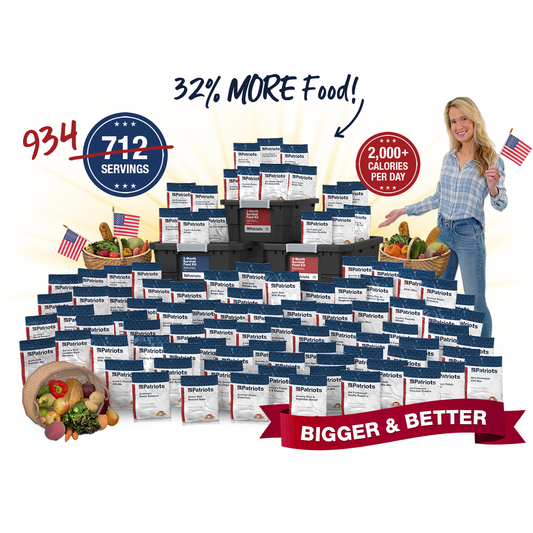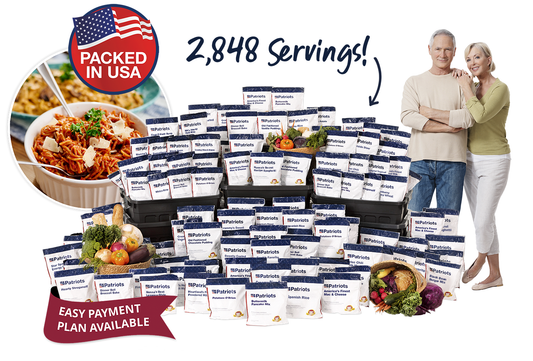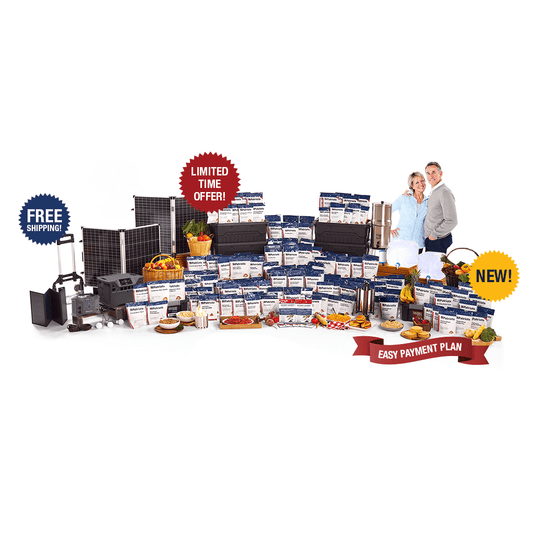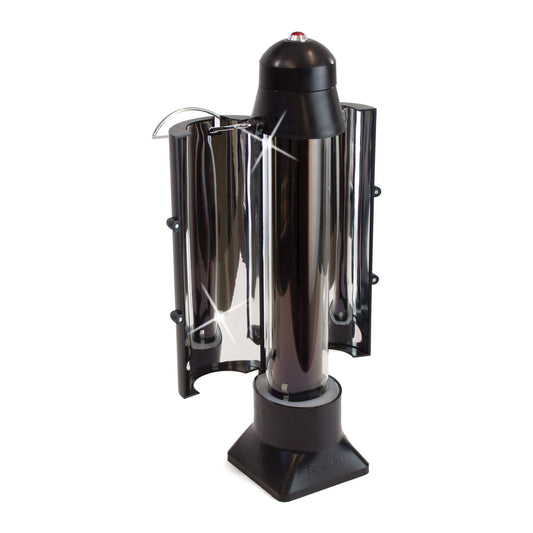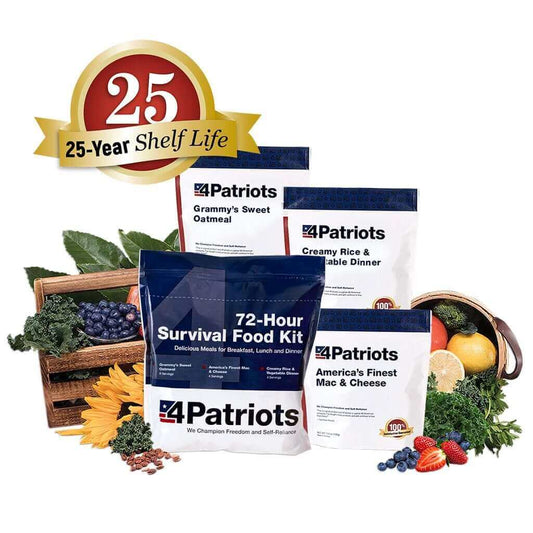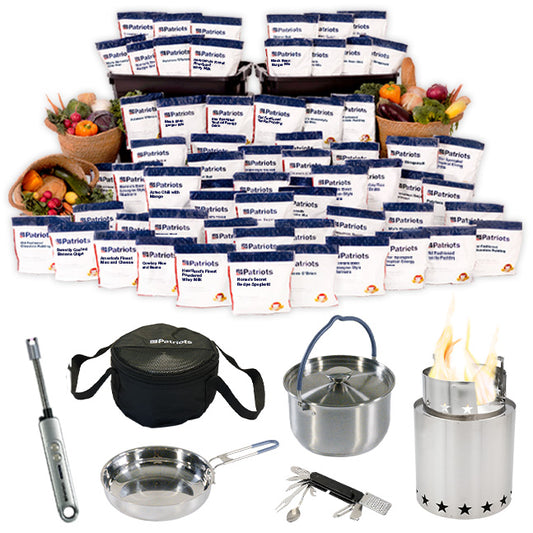
Employment, Food Availability in Jeopardy Due to COVID-19

Nearly all of the 50 state governors are making some tough decisions these days.
Chief among them is when and how to re-open their states for commerce. It's a challenging balancing act.
Opening too soon could result in a surge in coronavirus infections. Which means more people will get sick and more will die.
Opening too late means the state's economy will suffer even more. Unemployment and rising food prices have led to a recession that's either already here or coming soon.
Jobless Benefits Claims Soaring
Last week, 3.8 million Americans filed claims for jobless support. That was actually down from the previous week's 4.4 million, but that's not encouraging news.
In the two months since the COVID-19 pandemic started crushing the job market, 30.3 million people have applied for unemployment aid.
In rough numbers, that means one out of every five people who had a job in February now doesn't.
Many businesses have been forced to shut their doors because of government mandates. Others are finding new ways to serve folks, but are still losing.
Trying to Play Catch-up
Due to the huge volume in unemployment applications, the system is running behind. Many workers are waiting weeks to get their checks.
Andrew Stettner is an expert on unemployment coverage at The Century Foundation.
"Anyone who has spent time talking with displaced workers knows that it has been an exasperating and confusing process between filing for unemployment and getting paid," he told National Public Radio.
"One can only hope that, with passing time, unemployment funding will catch up to the demands and needs of struggling families."
U.S. Facing Worst Drop Since 1946
The International Monetary Fund (IMF) says this will be the worst global decline since the 1930s Depression.
The U.S. economy is predicted to shrink by 5.9 percent in 2020. That would be the worst annual drop since 1946. That's well over 1 million confirmed infections and over 67,000 deaths will do to a country.
Prior to the COVID-19 crisis, America's unemployment rate was low. Jobs were increasing at a steady pace.
Now, it's expected to leap to 10.4 percent this year. Most economists expect a rebound after that, but everything is dependent on getting this virus under control. A second wave of the virus in 2021 could destroy that rebound.
'Just a Fool's Game'
Some economists are not even bothering to make forecasts. They say the situation is too volatile and unpredictable.
Martha Gimbel is an economist at Schmidt Futures. Here's what she told Business Insider. "This is so bad and so unprecedented that any attempt to forecast what's going to happen here is just a fool's game.
"Everyone wants the answer. Everyone wants to know exactly how bad it is and exactly how bad it's going to get.
"And that's just almost impossible to tell right now."
No Simple Solution
Something that everyone does know is that getting the economy moving again is dependent on states opening up. But it's not that simple.
A surge in infections would result in places closing again. The IMF says social distancing and quarantines are vital. Even though it means the continued slowing of the economy.
An IMF statement read in part, "Upfront containment measures are essential to slow the spread of the virus. And allow health care systems to cope. And to help pave the way for an earlier and more robust resumption of economic activity."
"Uncertainty and reduced demand for services could be even worse in a scenario of greater spread without social distancing."
Meat Shortage Is Here
With so many people out of work and food amounts rising, many are concerned about being able to feed their families.
Empty store shelves have been a problem throughout this crisis. Now we know a meat shortage is coming. Due to too many meat-packing employees coming down with the virus.
In mid-April, 10,000 cars lined up outside the San Antonio Food Bank of Texas. The organization's CEO said he "panicked" when he saw the line.
Congress has stepped in. They've passed The Families First Coronavirus Response Act. And the Coronavirus Aid, Relief, and Economic Security Act.
Price Gouging Makes It Worse
But food insecurity will continue to be a problem. At least until things return to "normal."
And the problem worsens for those victims of price gouging. Some older Americans who are afraid to go to grocery stores are getting food through a delivery service.
Price gouging and delivery fees are making it very difficult for those on a fixed income to acquire all the food they need.
The attorneys general in 33 states recently sent letters to companies including Amazon, Walmart and Facebook. They complained that those organizations are not doing enough to crack down on price gouging.
Amazon says it has suspended the accounts of nearly 4,000 sellers. And has removed more than 500,000 listings due to numbers gouging.
The Next Pandemic... Hunger
Even those who do not have financial woes right now are worried that stores might not be able to supply what's needed.
There is growing concern about the ability of the food supply chain to keep up with demand.
The United Nations is predicting that the next pandemic – on the heels of this one – will be a hunger pandemic.
It is more important than ever for people to do everything they can to achieve food security.
Featured Products
- Regular price
- $699.95
- Regular price
-
- Sale price
- $699.95
- Unit price
- per
- Regular price
- $2,999.95
- Regular price
-
- Sale price
- $2,999.95
- Unit price
- per
- Regular price
- From $29.95
- Regular price
-
- Sale price
- From $29.95
- Unit price
- per
- Regular price
- From $29.95
- Regular price
-
- Sale price
- From $29.95
- Unit price
- per
- Regular price
- $2,499.95
- Regular price
-
- Sale price
- $2,499.95
- Unit price
- per
- Regular price
- $499.95
- Regular price
-
- Sale price
- $499.95
- Unit price
- per
- Regular price
- $999.95
- Regular price
-
- Sale price
- $999.95
- Unit price
- per
- Regular price
- From $29.95
- Regular price
-
- Sale price
- From $29.95
- Unit price
- per
- Regular price
- $2,999.95
- Regular price
-
- Sale price
- $2,999.95
- Unit price
- per
- Regular price
- From $2,796.95
- Regular price
-
$8,390.95 - Sale price
- From $2,796.95
- Unit price
- per
- Regular price
- $4,999.95
- Regular price
-
- Sale price
- $4,999.95
- Unit price
- per
- Regular price
- From $129.95
- Regular price
-
$259.95 - Sale price
- From $129.95
- Unit price
- per
- Regular price
- $847.95
- Regular price
-
$897.95 - Sale price
- $847.95
- Unit price
- per
- Regular price
- $1,999.95
- Regular price
-
- Sale price
- $1,999.95
- Unit price
- per
- Regular price
- $279.95
- Regular price
-
- Sale price
- $279.95
- Unit price
- per
- Regular price
- From $69.95
- Regular price
-
- Sale price
- From $69.95
- Unit price
- per
- Regular price
- $29.95
- Regular price
-
- Sale price
- $29.95
- Unit price
- per
- Regular price
- $849.95
- Regular price
-
- Sale price
- $849.95
- Unit price
- per
- Regular price
- $249.95
- Regular price
-
- Sale price
- $249.95
- Unit price
- per
- Regular price
- $199.95
- Regular price
-
- Sale price
- $199.95
- Unit price
- per
- Regular price
- $129.95
- Regular price
-
- Sale price
- $129.95
- Unit price
- per
- Regular price
- $114.95
- Regular price
-
- Sale price
- $114.95
- Unit price
- per
- Regular price
- $69.90
- Regular price
-
- Sale price
- $69.90
- Unit price
- per
- Regular price
- $19.95
- Regular price
-
- Sale price
- $19.95
- Unit price
- per
- Regular price
- $3,499.95
- Regular price
-
- Sale price
- $3,499.95
- Unit price
- per






